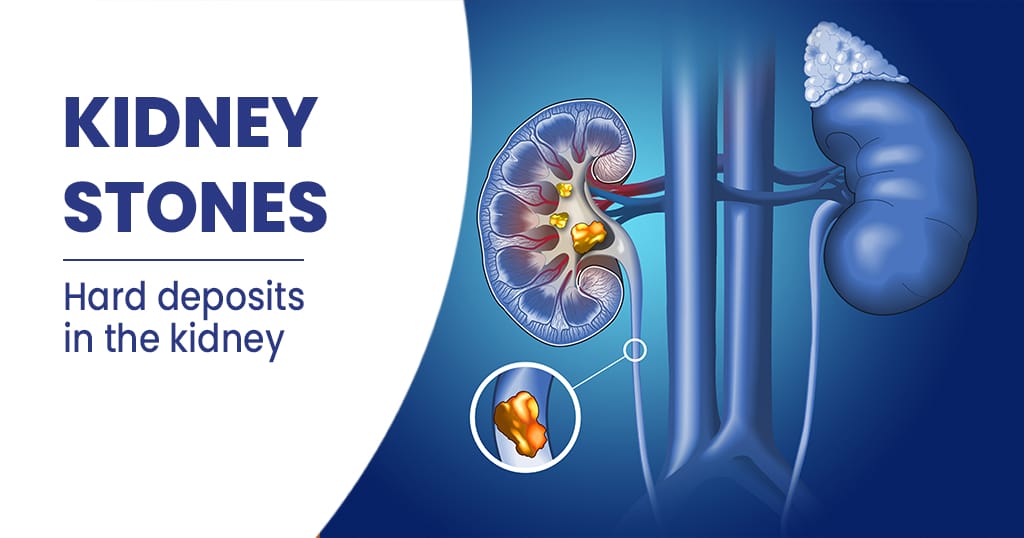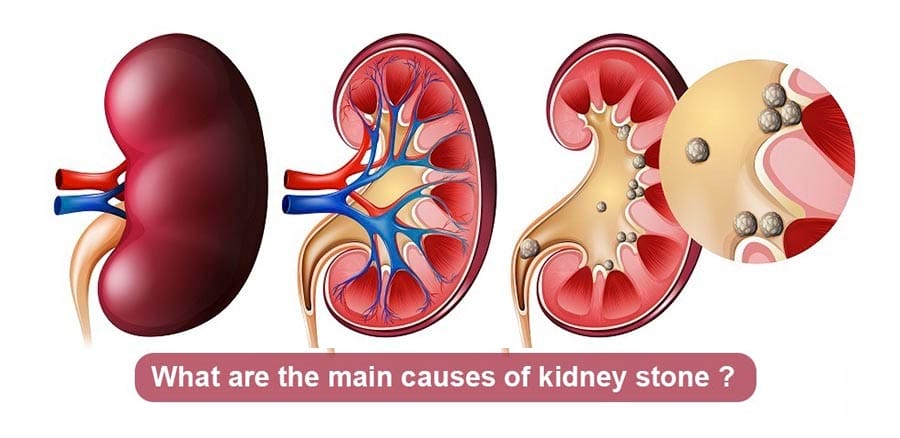Science has progressed a lot during the last few years but is still growing. Pain is an unpleasant feeling and is different for everyone. You probably know that passing a kidney stone at a particular time is very painful. People have compared stone pain similar to labour pain. It is a most peculiar symptom of Kidney stones. While it is the most talked about kidney stone symptom, it feels terrible and might not be the only symptom to look out for.
Kidney stones are quite common and are often painful. They are also treatable and even preventable. If you think you may have kidney stones, it would be better to see your doctor as soon as possible. Delaying kidney stone treatment can lead to severe complications.
Most of us have heard about kidney stones and how bad they hurt. Identifying whether your pain is due to kidney stones would be wise.
Ayurveda has been consistently beneficial in providing relief to kidney stone pain. These kidney stone medicines can dissolve and break the kidney stone so it can pass out easily.

What are the other symptoms of kidney stones?
Urine carries various wastes dissolved in it as minerals, salts and crystals. Crystals begin to club together when there is too much waste in too little liquid. This is one of the major causes of Kidney stones. These crystals also attract other elements in urine and combine to form a solid that grows in size unless excreted in the urine. The kidney eliminates these compounds in urine.
In most cases, a sufficient quantity of liquid washes them or other compounds in urine and prevents stone formation. Calcium, oxalate, urate, cystine, xanthine, and phosphate are the compounds that are found to be responsible for forming stones. We can now correlate and understand why we are advised to keep our bodies hydrated.
Other symptoms of kidney stones include:
- A burning sensation or pain while urinating
- Small frequent urination
- Feeling queasy or nauseous due to the intense pain
- Sharp pain in the lower abdomen
- Signs of infection, fever, and chills
- Smelly urine
- Coloured urine indicating the presence of blood

Where is kidney stone pain indicated?
The sharp pain associated with kidney stones is peculiar in its type. It shifts as the stone progresses down the urinary tract. The most common kidney stone pain area is:
- On one side of the body, under the ribs or
- lower abdomen or groin or
- Lower back
While kidney stone pain is undoubtedly the most difficult to bear of the symptoms of kidney stones, it’s not always the earliest sign. It is not even the most obvious sign, for that matter.
The pain associated with kidney stones is felt until the stone formed passes through your urinary tract. Also, because of anatomical differences in the urinary systems of men and women. Both of them describe kidney stone pain differently. As mentioned above, the pain is relative, and everyone has a different threshold for it.
The intensity of pain is not a measure of the intensity of the problem of a kidney stone. Smaller stones that tend to pass on their own can still be painful. And not every kidney stone that requires medical attention is associated with excruciating pain. At times, it has been observed that a kidney stone remains in place and does not cause any pain. Pain is observed whenever it causes any blockage or tends to pass through the tract.
It is always advised that if you are in pain, you must see your doctor. But if you’re in mild discomfort combined with the above symptoms of kidney stones, and especially if you have a fever or severe urinary symptoms – it’s crucial to see your GP.

How long do Kidney Stone Symptoms last?
The time frame for kidney stone symptoms can be a week or a month, or even more. You might observe intermittent kidney stone pain. Even if your kidney stone pain seems to have subsided, it’s essential to contact your GP because intermittent pain is commonly seen in Kidney stone patients.
A few small kidney stones or crystals may pass on their own.
While others may require treatment – such as medication or a procedure to help break up the stone or even surgical removal.
Your doctor may ask you to undergo some necessary tests to determine if the stone is likely to pass on its own or if you need treatment. At a certain point, your doctor can help you manage the pain associated with giving the stone with some medicines.
Kidney Stones Treatment
You can always go about your daily business despite having kidney stones. Your quality of life is never found to be significantly diminished by them. Kidney stones can be removed with treatment since they can be passed in the urine.
Kidney stone patients have significantly benefited from Ayurvedic kidney care thanks to its kidney stone medications, which dissolve kidney stones and make them easier to pass without causing discomfort or obstruction. These ayurvedic treatment online store have allowed patients to recuperate quickly and avoid the gruelling kidney stone surgery procedure.

